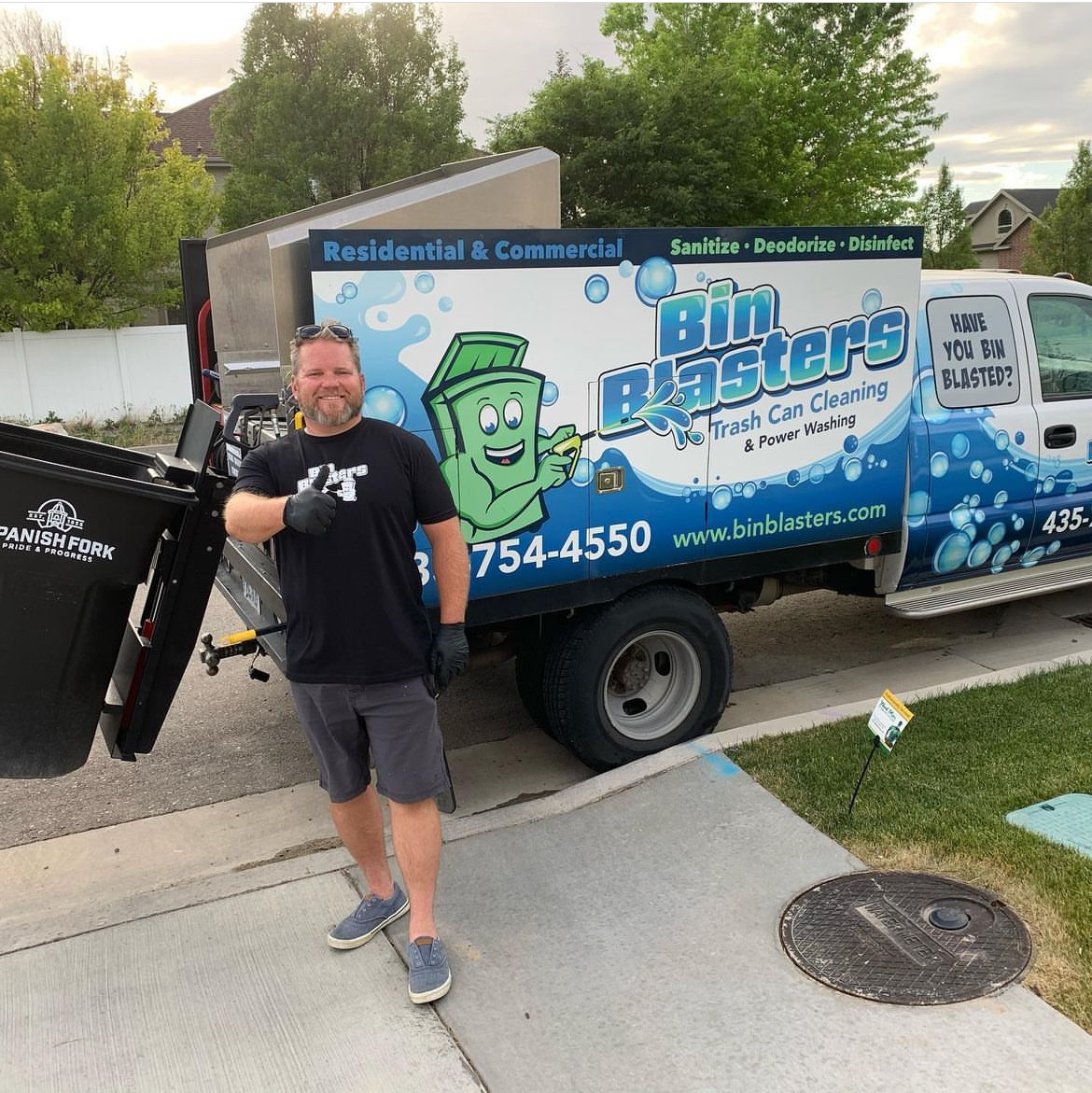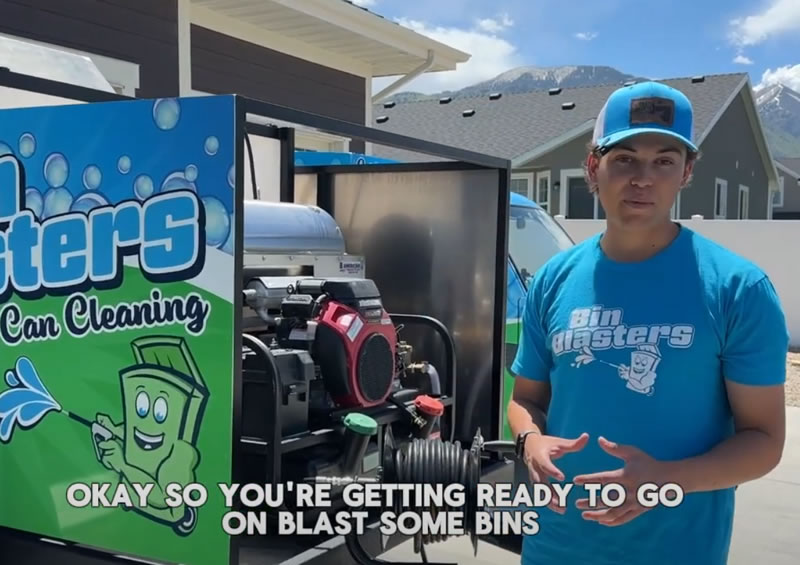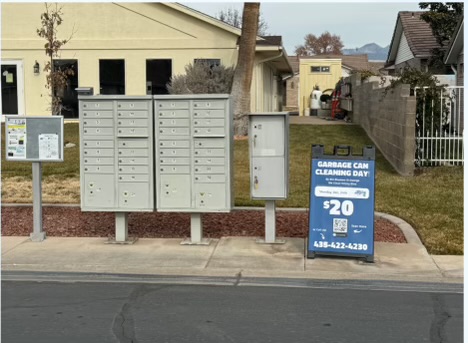Running a bin cleaning business isn’t just about spotless cans and happy customers—it’s also about keeping your finances squeaky clean. If you’re hauling a bin washing trailer around town, spraying down garbage cans, and juggling scheduling software, you already know the costs can add up fast. The good news? Many of those everyday business expenses can actually work in your favor once tax season rolls around.
That’s where tax deductions come in. From the gas that fuels your truck to the eco-friendly detergents you use in every wash, the IRS allows you to deduct a wide range of costs that are considered “ordinary and necessary” for operating your bin cleaning business. Translation: you get to keep more of the money you’ve worked so hard to earn.
In this guide, we’ll walk through the most common deductions for garbage can cleaning companies—from equipment and vehicles to marketing and insurance—so you know exactly what to keep track of. Whether you’re just starting out or have been running your can cleaning service for years, these deductions can make a real difference to your bottom line.

Top Deduction Categories for Bin Cleaning Businesses
Below are the most relevant deductions for companies that clean trash bins, use bin washing trailers, or provide “garbage can cleaning” services.
| Deduction Category | What Counts / Examples for Bin Cleaning Businesses | Tips to Maximize It |
|---|---|---|
| Equipment & Supplies | This includes your bin washing trailer, pressure washers, hot-water sanitization systems, nozzles, hoses, biodegradable cleaning agents, safety gloves, deodorizing chemicals, bins/containers. Things that last more than a year (trailers / major machinery) might need to be depreciated. Equipment maintenance and repairs also count. | Use Section 179 (if eligible) to deduct full cost of qualifying equipment in year bought. Keep detailed purchase & maintenance records. Separate consumables (which you can deduct fully) from capital equipment. |
| Vehicle & Travel Expenses | If you use vehicles (trucks, vans) to haul your bin washing trailer or drive between customer locations, you can deduct fuel, repairs, insurance, registration, etc. Mileage when driving between jobs is also deductible. | Choose between standard mileage method vs actual expenses; whichever yields more savings. Track business vs personal use closely. Keep log books or apps with dates, miles, purpose. |
| Home Office & Administrative Costs | If you have an office space (could be at home) for scheduling, invoicing, customer service, supply orders, bookkeeping. Expenses: portion of rent or mortgage, utilities, internet, phone. Also software subscriptions (route planning, accounting, CRM). | Measure square footage, document exclusive business use. Keep all bills, use business accounts when possible. |
| Insurance & Liability | Premiums for business liability insurance, vehicle insurance for trailers/vans, workers’ comp if relevant. Insurance for the equipment (damage / theft) also counts. | Review policies annually; sometimes bundling helps save. Document all insurance premium payments. |
| Labor, Contractors & Employee Costs | Wages paid to staff who do the bin cleaning, assistants, contractors if you hire help. Also uniforms, safety gear, laundry of those uniforms. Safety training or certifications if required. | Be sure to classify workers properly (employee vs contractor) under local / IRS rules. Maintain payroll records, filed forms (e.g. 1099s). |
| Marketing, Advertising & Customer Acquisition | Website costs, digital ads, flyers, branded wraps on your trailer (billboards on wheels), local ads, signage. Referral programs. Also costs of maintaining a professional online presence. | Keep invoices, track what ads or marketing activities bring in customers (helps justify / optimize). Spread some of that cost over time or regionally if you advertise broadly. |
| Depreciation / Section 179 | Big-ticket items like trailers, washing rigs, trucks. Rather than deducting the entire cost in one year, you may need to depreciate them over their useful life. Or, use Section 179 (if your business qualifies) to write off the full cost in one year. | Verify eligibility, limits for Section 179. Consult your accountant. Keep depreciation schedules. |
| Utilities & Overhead | Costs of water usage, fuel/oil for machines, electricity for office / equipment chargers, cleaning facility overhead, waste water disposal, rent if you lease a space from which you store/clean. | Allocate usage properly if shared between personal & business. Use business accounts. Keep utility bills. |
Less Obvious Deductions that Bin Cleaners Sometimes Miss
- Permits & licensing fees (local business licenses, permits to operate mobile services)
- Uniforms / branded apparel & cleaning / maintenance of those uniforms
- Training / certification courses (safety, handling cleaning chemicals etc.)
- Banking / merchant fees, credit card processing fees
- Interest on business loans (if you finance equipment)
- Maintenance, repair, and cleaning of your equipment, trailer, hoses etc.
How to Stay Organized & Avoid Issues
- Use accounting software or a bookkeeping service to track all receipts & categorize expenses.
- Keep personal and business accounts separate.
- Take photos of receipts; store electronically.
- At year-end, review all assets that may need depreciation.
- Consult a tax professional familiar with service businesses / mobile services.
Example: How It Works in a Bin Cleaning Business
Suppose:
- You purchase a bin washing trailer for $40,000.
- You use it throughout the year.
- You also drive between homes/businesses 20,000 business miles.
You may be able to:
- Deduct the full trailer cost via Section 179 (if under limits) or depreciate it.
- Deduct vehicle expenses (fuel, maintenance, insurance) or use standard mileage for the business miles.
- Deduct the cost of cleaning supplies, detergents, water, hot-water heater usage, etc.
- Deduct utility portion (if you have a home office or store supplies in a workspace).
Final Thoughts
By understanding which expenses are deductible, bin cleaning businesses can significantly reduce tax burden, reinvest in better equipment, and grow more sustainably. Always keep thorough records, track all business-related costs (even the small ones), and get professional advice when making big purchases or handling depreciation.







Comments are closed.